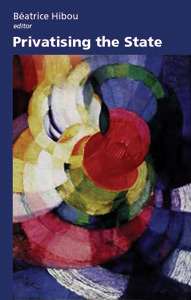
Béatrice Hibou
Privatisation is supposed to bring about the retreat of the state. But what happens when the state privatises itself and even its core functions - tax collection, internal security, customs - are auctioned to the highest bidder? Does this imply a weakening of the state? Or, rather, does it lead to a scrutiny and control? The contributors to this work examine these phenomena in the former 'Second' and 'Third World' (Central and Eastern Europe, China and other parts of Asia and Africa) highlighting the very different ways in which continuing state interference and privatisation are implemented. What we are witnessing, according to this study, is not the eclipse of the state under the impact of globalisation but the end of the relatively short era of the 'development state' and its commanding role. privatisation does not necessarily lead to a weakening of state control; it leads to new, and often more informal, forms of interference and influence, and it is these that are the book's central theme.
